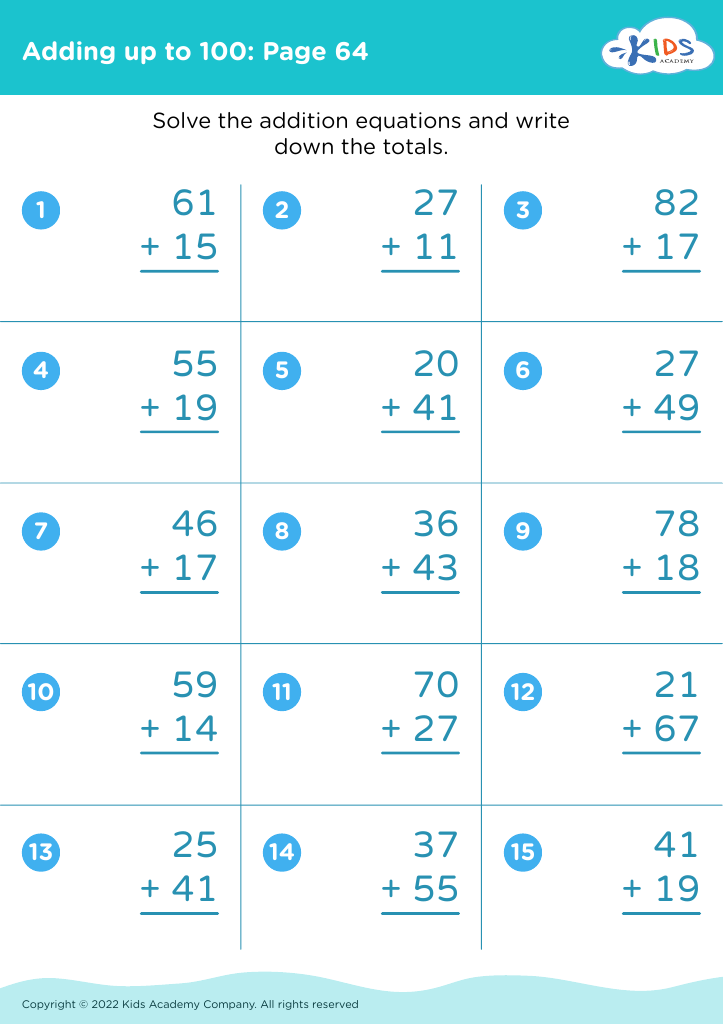Numerical problem solving Addition & Subtraction Worksheets for Ages 4-8
3 filtered results
-
From - To
Enhance your child’s mathematical skills with our "Numerical Problem Solving: Addition & Subtraction Worksheets for Ages 4-8." Designed by experts, these engaging worksheets offer a variety of problems that help young learners practice and master addition and subtraction. Each sheet presents fun, real-world scenarios that build critical-thinking and problem-solving abilities. Perfect for classroom or at-home learning, these resources aim to boost confidence and foster a love for math. Accessible and easy to use, they ensure optimal learning experiences for children while making math enjoyable and approachable. Help your child excel today with Kids Academy’s premium worksheets.
Numerical problem solving, particularly in addition and subtraction, is fundamental for children aged 4-8 as it builds the foundation for all future mathematical learning. At this early age, children are developing critical cognitive skills, such as logical thinking, pattern recognition, and understanding relationships between numbers. When parents and teachers focus on these basic mathematical operations, they are not just teaching children to calculate but also fostering their ability to handle more complex problems later on.
Early mastery of addition and subtraction enhances a child's confidence in their mathematical abilities, promoting a positive attitude toward learning. These basic skills are frequently applied in everyday activities, such as counting items, sharing equally, and understanding sequences, which provide practical experiences that make learning relevant and engaging.
Moreover, engaging with these concepts prepares children for more advanced topics, such as multiplication, division, and fractions, ensuring they are not left behind as mathematical curriculum progresses. Consistent practice in addition and subtraction also improves memory, attention spans, and the ability to follow instructions.
In their formative years, a strong grasp of these fundamental concepts equips children with analytical skills that are crucial not only for academics but for problem-solving in everyday life. Hence, it is imperative that parents and teachers support early numerical problem-solving skills to lay the groundwork for lifelong learning and success.




















